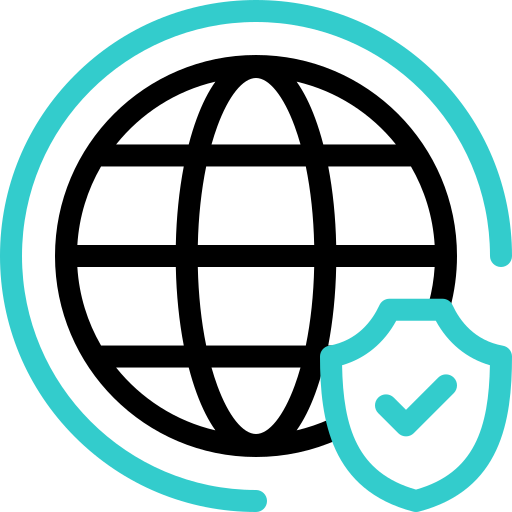TUTORIALS
07-Feb-2023
Kostenloses und automatisiertes SSL mit Let's Encrypt und Nginx auf Linux einrichten
 Dieser Inhalt ist nur auf Englisch verfügbar.
Dieser Inhalt ist nur auf Englisch verfügbar.1.Installing Certbot
1.1.On Debian-Based Systems
To install Certbot and its Nginx plugin on Debian-based systems like Ubuntu, execute the following commands:sudo apt install certbot python3-certbot-nginxThis setup prepares your system for SSL certificate management.1.2.On Red Hat-Based Systems
Start by enabling the EPEL repository to access Certbot packages:sudo yum install epel-releaseThen, proceed to install Certbot and the Nginx plugin:sudo yum install certbot python3-certbot-nginxThis process readies your Red Hat-based system for SSL certificate management.2.Acquiring SSL Certificates with Certbot
With Certbot installed, the next step is to use it to obtain SSL certificates from Let's Encrypt. This procedure includes Certbot making modifications to your Nginx configuration to secure your website's connections.2.1.Configuring Nginx and Obtaining Certificates
To secure your site with an SSL certificate, run:sudo certbot --nginxThis command initiates an interactive session that guides you through the certificate acquisition process. Certbot will automatically update your site's Nginx configuration file to use the newly obtained certificate, ensuring secure connections.During this process, Certbot saves the SSL certificate files to a standard location on your system. On Debian-based and Red Hat-based systems, these files are typically located in the /etc/letsencrypt/live/yourdomain.com/ directory. This directory will contain the certificate file (cert.pem), the private key (privkey.pem), and other related files necessary for SSL configuration.3.Automated Renewals
Let's Encrypt certificates are valid for 90 days, requiring renewal to maintain website security. Certbot automatically configures your system for these renewals. To verify the setup, perform a dry run with:sudo certbot renew --dry-runA successful test ensures that your system is configured to automatically renew certificates, keeping your site secure without needing manual intervention.4.Bereitstellen mit Interspace Cloud Servern
Für diejenigen, die schnell loslegen möchten, bietet die Interspace Cloud Platform eine effiziente Lösung. Sie können einen virtuellen Server mit vorinstalliertem Betriebssystem und Apps in etwa einer Minute bereitstellen. Interspace geht über die schnelle Bereitstellung hinaus, indem es Ihnen ermöglicht, Ihre Systeme vor Beginn der Installation mit benutzerdefinierten Einstellungen zu konfigurieren. Dies umfasst das Festlegen von Zugangsdaten, Domains, Ports für Verbindungen und anderen anwendungsspezifischen Optionen.Zusätzlich zur schnellen Bereitstellung überzeugt Interspace durch sein Preis-Leistungs-Verhältnis. Wir laden Sie ein, die Pläne und Preise auf der Seite für Elastic Cloud VPS zu erkunden.Der Inhalt dieses Dokuments ist von Interspace unter der MIT-Lizenz lizenziert
Verwandter Inhalt
Dokumentation

Cloud

Kommunikation

Hosting

My Interspace
Technische Artikel

Tutorials

Lernen
Nachrichten

Neueste Nachrichten

Neueste Ereignisse
Verwandte Produkte

Premium Internetzugang
Hochwertigster Internetzugang für professionelle Anforderungen. Überlegene Punkt-zu-Punkt Glasfaserverbindung, symmetrische Down/Up Geschwindigkeit, unbegrenzter Datenverkehr, SLA 99,9% und statische IP. Direkte Verbindungen zu den wichtigsten Tier-1 globalen Providern.
Unsere Netzwerkarchitektur wurde mit Leidenschaft entwickelt, um höchste Verbindungsqualität zu jedem Ziel weltweit zu gewährleisten, mit unübertroffenen Übertragungsgeschwindigkeiten und mehrstufiger Redundanz.

Dedicated Server
Dedizierte Server mit hochwertiger Hardware von bekannten Server-Herstellern. Sie werden in unseren eigenen Rechenzentren gehostet, wodurch wir die volle Kontrolle über die Gewährleistung der Verfügbarkeit rund um die Uhr haben. Auswahl an primären Rechenzentren und einem Disaster Recovery Standort in sicherer Entfernung.
Stromversorgungsoptionen (Reset, Ein/Aus) und kostenloses KVM-over-IP rund um die Uhr per Mausklick verfügbar, einschließlich der Unterstützung zum ferngesteuerten Booten/Installieren Ihrer eigenen ISO-Images.

Elastic Cloud VPS
Elastic Cloud VPS ist eine virtuelle Maschine, die auf fortschrittlichen Cloud- und Netzwerktechnologien läuft und überlegene Vorteile gegenüber traditionellem VPS-Hosting bei einem außergewöhnlichen Preis-Leistungs-Verhältnis bietet.
Bereitstellen von Betriebssystemen und Apps in nur 1 Minute. Geo-redundante Backups mit einem Klick, Snapshots und Disaster Recovery. Prozessoren der nächsten Generation AMD EPYC, ultraschneller NVMe-Speicher, dedizierte Verbindungen und kostenloses privates Netzwerk.
 Deutsch
Deutsch Македонски
Македонски Slovenščina
Slovenščina Srpski
Srpski Shqip
Shqip Български
Български